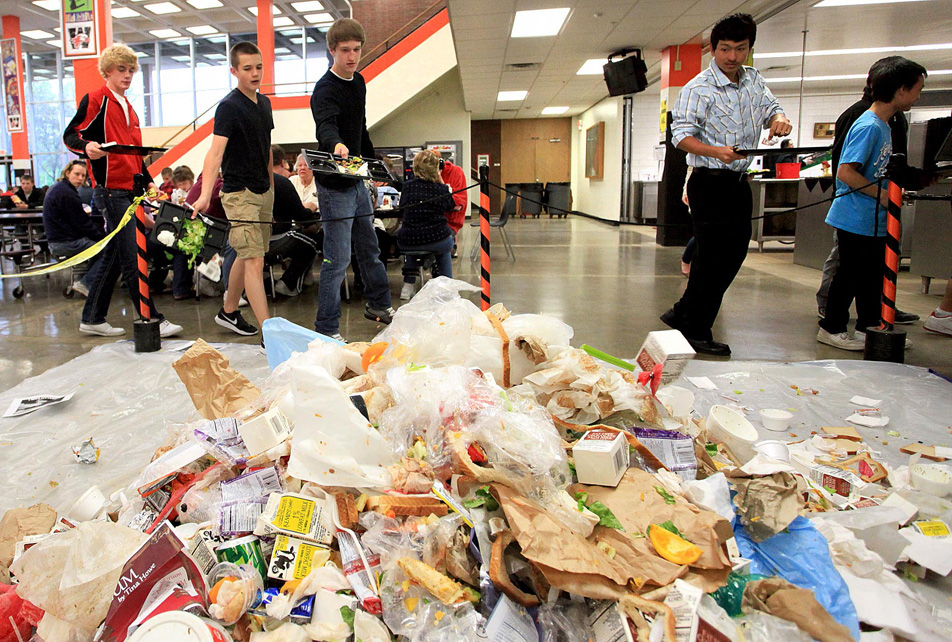Join SCrAP and get neat stuff for your school
Think back to your childhood experience in the school cafeteria. Remember the wasted food tossed into trash after a small bite? Recall the garbage cans brimming with discarded lunches?
According to DoSomething.org, one of the largest global organizations for young people and social change, one in six Americans face hunger and more than one in five children is at risk of hunger. In our public schools over 20 million children receive free or reduced-price lunches every day. So you’d think our youth and their families would respect food.
Think again. According to the National Resources Defense Council (NRDC) about 40% of food produced in the United States is tossed into the garbage. That’s $165 billion worth of food annually.
Responding to this statistic, the United States Environmental Protection Agency and the U.S. Department of Agriculture want to divert 50% of food waste from landfills by 2030. This anticipated goal will be accomplished through waste management options and reduced food wastes.
Consequently, schools need to be studied to determine the amount of food discarded by cafeterias. To understand the issues involved, students and staff need to be educated regarding waste management strategies, how food waste can be reduced, how school cafeteria food costs can be lowered, and develop improved ways to manage institutional food waste.
The School Cafeteria Discards Assessment Project (SCrAP), developed by the Environmental Research and Education Foundation (EREF), quantifies food wastes generated in cafeterias at K-12 schools nationally.
The objective of SCrAP is to accumulate data about the quantity of waste generated in school cafeterias and understand how this waste is managed—at school and after it is hauled away.
SCrAP is looking for trailblazers motivated to create a cleaner and greener environment as they educate elementary, middle, and high school children.
To become a SCrAP participant school leaders need to complete a simple questionnaire. In exchange, participants will receive waste related educational materials for the classroom, a results report tailored for their school, and the opportunity to win a cash prize for the school for as much as $1500.
Participation in the SCrAP program includes three levels.
The Purple level involves answering a questionnaire about your school’s waste management practices.
The Blue level is more complex. The questionnaire needs to be completed as well as weighing cafeteria waste bins 3-5 times. The latter step provides important information in comprehending the kind of waste created and its quantity. The weight measurement activity can be a fun project related to a teacher’s math or science lesson about measurement.
The Gold level assumes the same responsibility as the Blue except cafeteria waste bins will be weighed 6-10 times. This extra information will provide SCrAP with data showing how much the waste stream changes during a school year and how different menu items affect waste.
Each participating school receives educational materials—videos, links to educational websites, instructional materials, and live webinars—about how waste is recycled, turned into energy, and how improper waste management harms our environment.
Each Blue and Gold school will receive a report summarizing how that school compares to nationally participating schools. The report will provide suggestions for improvement, and options for managing food wastes such as composting.
Blue level participants can receive prizes up to $750 where Gold level schools can be awarded as much as $1500. Schools have the power to determine how the money is spent—support science classrooms, student activities, or on equipment like computers.
School site leadership is invited to make their schools and the environment more sustainable by participating in SCrAP. Schools will improve and the chance to win money for programs difficult to fund will become available.
Michael Thal is the author of the Koolura Series.




It is not only in schools. Restaurants throw out a lot of food also. This is really a shame and I can’t believe this issue does not get any traction with the public.